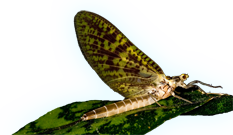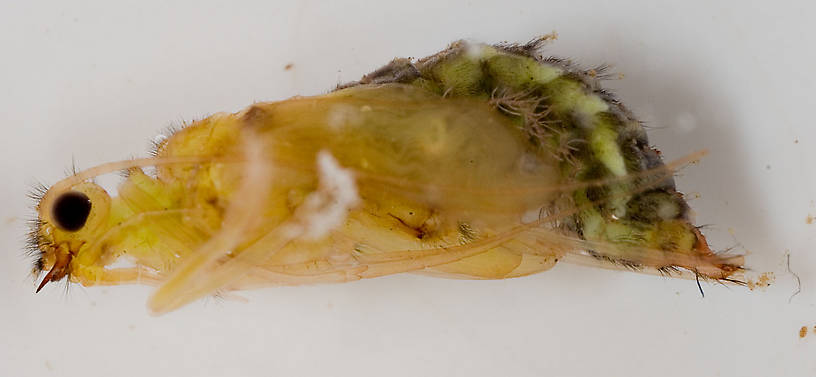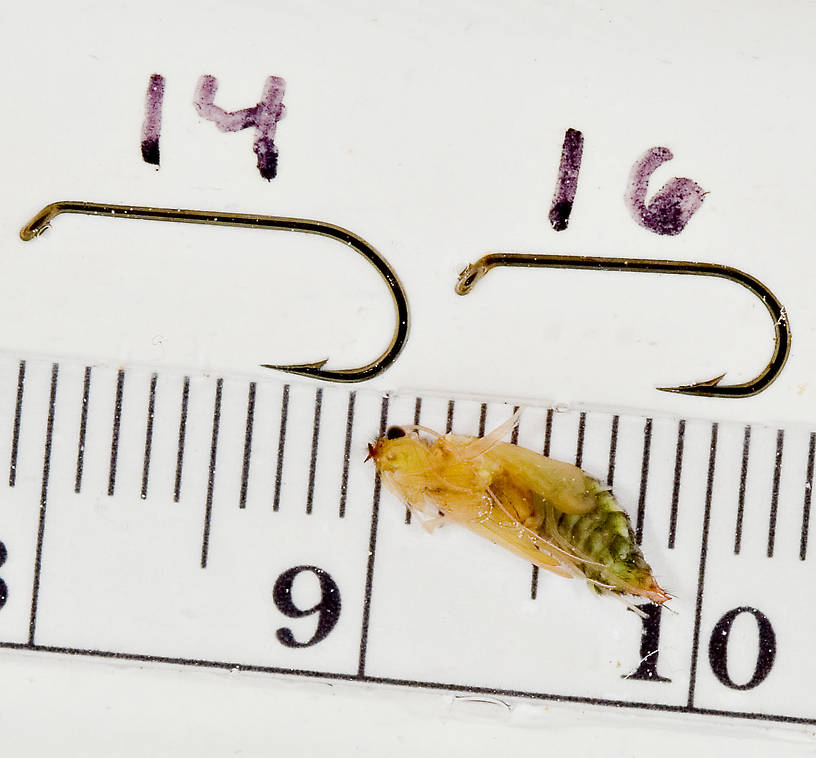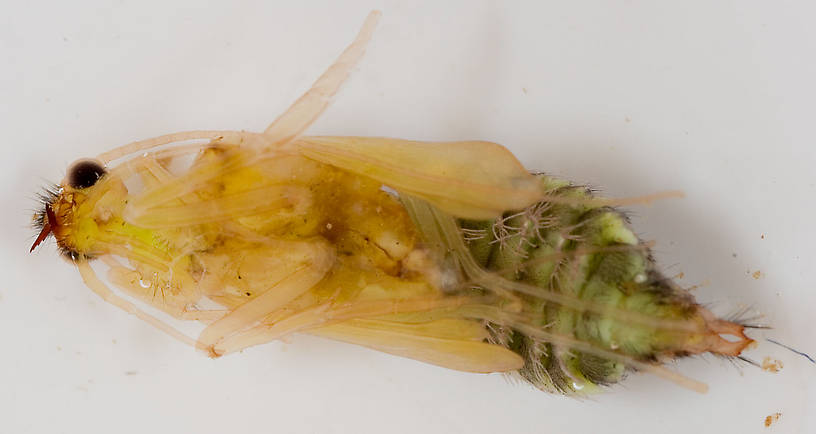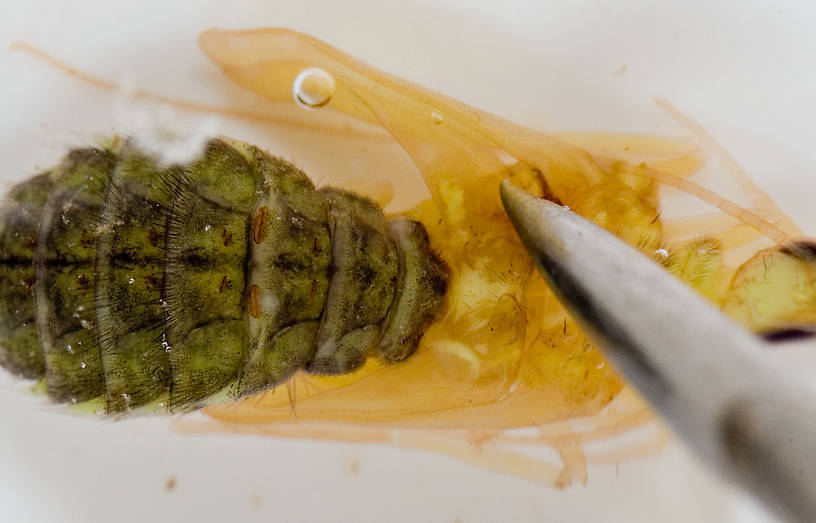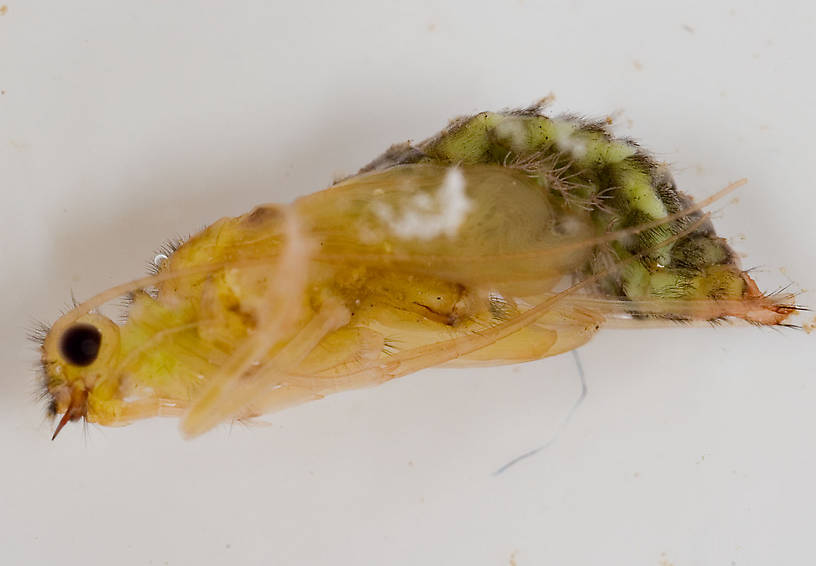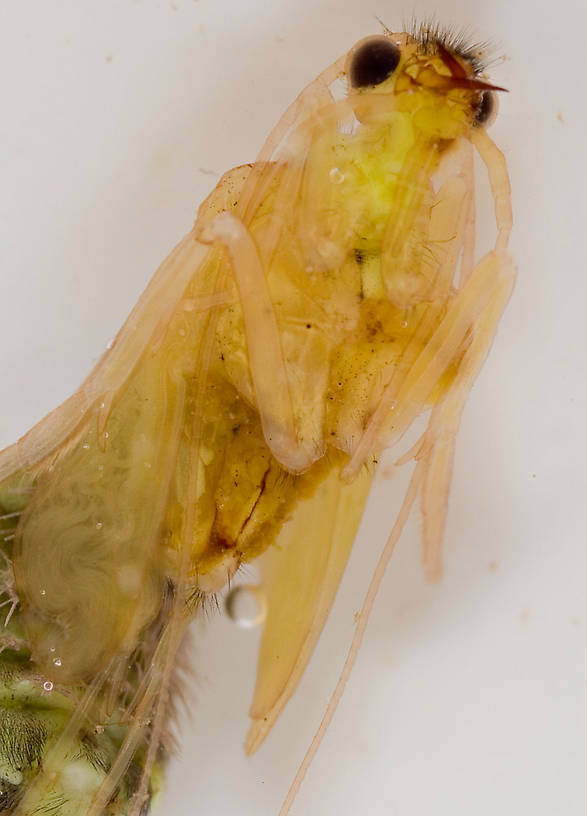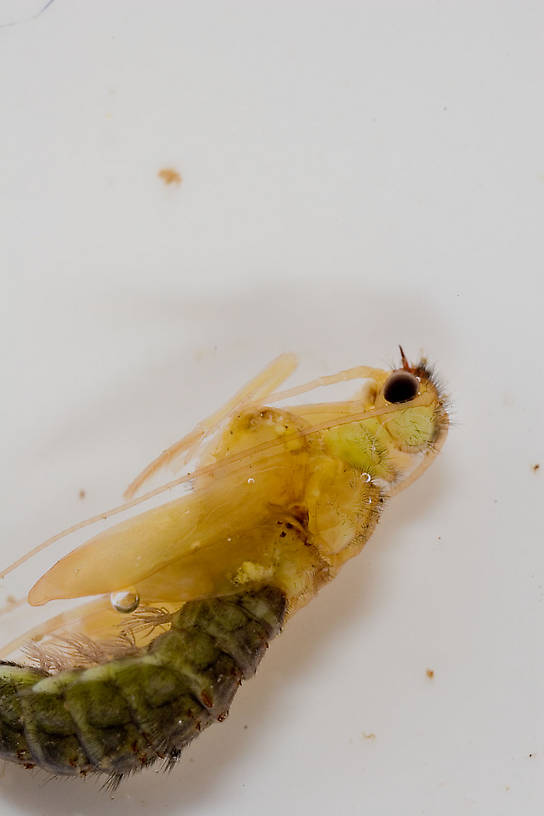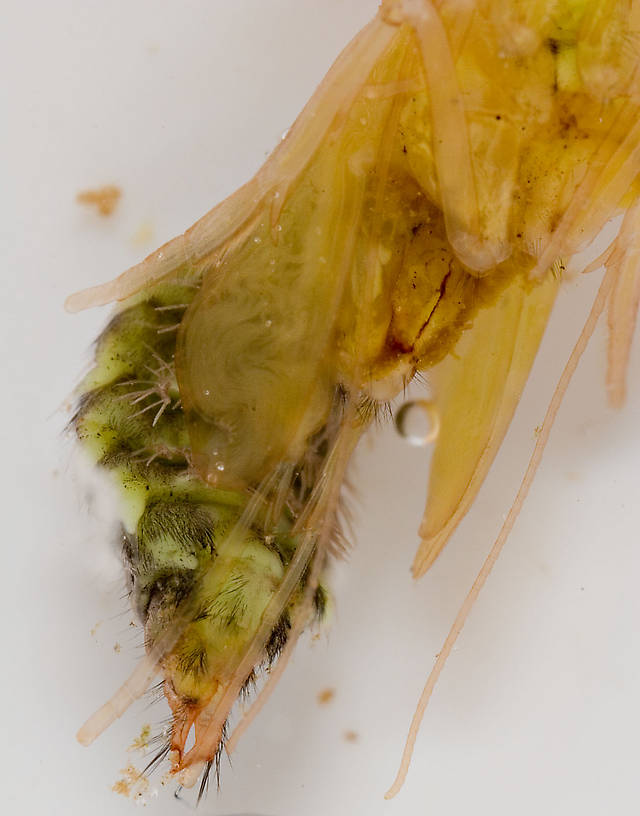Blog & Latest Updates
Fly Fishing Articles
Insects by Common Name

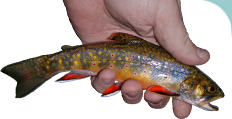
Hydropsyche (Spotted Sedges) Caddisfly Pupa Pictures
Classification
Kingdom
Animalia (Animals)
» Phylum
Arthropoda (Arthropods)
» Class
Insecta (Insects)
» Order
Trichoptera (Caddisflies)
» Family
Hydropsychidae
» Genus
Hydropsyche (Spotted Sedges)
Several users have interesting comments in the discussion of this specimen, but this observation by Creno is especially good:
Also, this is what I would call an "immature" pupa. The wingpads of caddis pupae darken to nearly black as the enclosed adults near emerging. The darkening is the developing adult wing inside the pupal wing pad (Wing pad: A protrusion from the thorax of an insect nymph which holds the developing wings. Black wing pads usually indicate that the nymph is nearly ready to emerge into an adult.). The ultimate coloration of the adult wing is not very apparent in most pupal wing pads (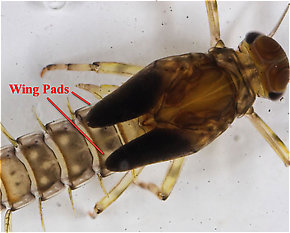 The wing pads on this final instar Baetidae mayfly nymph are extremely dark.Wing pad: A protrusion from the thorax of an insect nymph which holds the developing wings. Black wing pads usually indicate that the nymph is nearly ready to emerge into an adult.) as the majority of the adult wing coloration comes from the color/position of the adult wing hairs and setae (Seta: Little hairs on insects.). But dark pupal wingpads are a good indication that the emergence will occur very soon, likely that day or so, and that the adult parts are sufficiently developed within the pupae to make a species determination from the specimen, particularly if it is a male.
The wing pads on this final instar Baetidae mayfly nymph are extremely dark.Wing pad: A protrusion from the thorax of an insect nymph which holds the developing wings. Black wing pads usually indicate that the nymph is nearly ready to emerge into an adult.) as the majority of the adult wing coloration comes from the color/position of the adult wing hairs and setae (Seta: Little hairs on insects.). But dark pupal wingpads are a good indication that the emergence will occur very soon, likely that day or so, and that the adult parts are sufficiently developed within the pupae to make a species determination from the specimen, particularly if it is a male. The wing pads on this final instar Baetidae mayfly nymph are extremely dark.
The wing pads on this final instar Baetidae mayfly nymph are extremely dark.
This caddisfly was collected from the Delaware River on May 13th, 2007 and added to Troutnut.com on May 18th, 2007.
Recent Discussions of this Pupa
Hydropsychid? 14 Replies »
This actually looks more like a hydropsychid to me, probably one of the lighter-winged species of Cheumatopsyche. I hope we can get one of the experts to take a look.
ReplyStart a Discussion of this Pupa:
Top 10 Fly Hatches
Top Gift Shop Designs
Eat mayflies.
Top Insect Specimens
Miscellaneous Sites
Troutnut.com is copyright © 2004-2024 Jason
Neuswanger (email Jason). See my FAQ for information about use of my images.
 privacy policy
privacy policy
